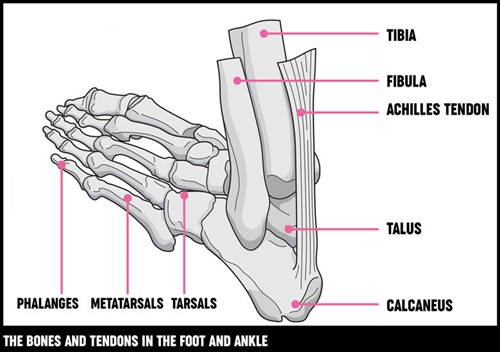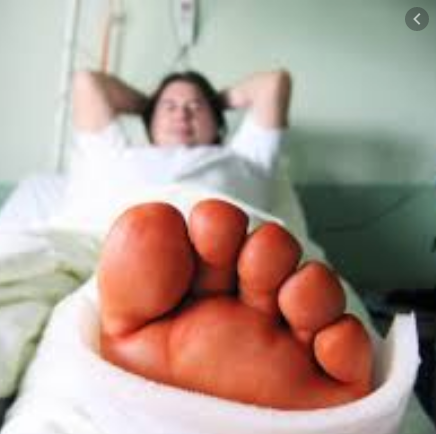What you need to know about Foot Surgery
Contents
Foot surgery is performed to alleviate discomfort or restore the function of your foot or ankle. While many foot problems can be treated with more conservative treatments, foot surgery may be required if:
-
Other, non-surgical treatments, such as drugs, orthoses, and special footwear, have failed.
-
You experience severe symptoms affecting your life (such as persistent pain).
-
Your feet are quickly becoming deformed and your skin is affected.
There are numerous types of foot surgery for a wide range of food conditions. Your doctor can determine which surgical intervention may be helpful for your case.

What does the Procedure Involve?
Bunion Surgery
A bunion is a bump that is made of soft tissue and bone located on the first joint of your big toe. It can become painful and limits your daily activities. In this case, you may need bunion surgery, which is also known as a bunionectomy. The procedure may involve removing a small portion of the damaged joint or realign the joint. Your doctor will determine which one is right for your specific case.
Metatarsal Surgery
The metatarsal bones are a group of five long bones located between the tarsal bones and the phalanges of the toes. There are many conditions that can affect these bones, including arthritis that result in joint dislocation. When there is a condition in your metatarsal bones that affect your ability to walk, metatarsal surgery may be needed. The goal of the surgery is to redistribute the weight-bearing on the ball of your foot.
Plantar Fasciitis Surgery
Plantar fasciitis is a condition in which the thick ligament located across the bottom of your foot (the plantar fascia) is inflamed. Plantar fasciitis surgery may involve partially detaching your plantar fascia from the heel bone in order to relieve inflammation and release tension or lengthening your calf muscle to increase your ankle motion or release stress on the plantar fascia.
Neuroma surgery
Neuroma surgery is done to remove a benign enlargement of a nerve, which can cause burning, pain, or tingling to certain toes, usually between the third and fourth toe. The surgery is usually necessary when the neuroma becomes advanced. During neuroma surgery, your surgeon will remove the inflamed nerve to relieve symptoms.
Fusion surgery
Fusion surgery is usually performed to treat painful or arthritic conditions of the foot and ankle. During a fusion surgery, your surgeon may remove all cartilage from a joint, then two or more bones are joined together so that they do not move. Screws, pins, plates, or a combination of these can be used to join the bones together.
Reconstructive surgery
Reconstructive foot surgery includes complex surgical repairs that may be required to reduce pain, regain stability or function, and prevent further disease or deformity. It can be used to correct numerous conditions, ranging from congenital defects to trauma.
How Long Should I Stay in the Area?
Your length of stay depends on the type of foot surgery you have. In general, you may need to stay in the area for at least 10 to 14 days because you will need to let your body recover and attend follow-up checkups. During the follow-up checkups, your doctor will monitor your healing and remove the surgical stitches.
What’s the Recovery Time?
The recovery time varies from one person to another, depending on which condition you have, the severity of the condition, and the type of surgery you undergo. It may take weeks until you can resume your normal activities. You may need to wait around 3 to 6 weeks until you can get back to work (office job), but it may take longer for some extensive surgeries. For more complicated surgeries, it may take a full year of recovery. Remember that you need to increase the intensity and time of your activities gradually after all types of foot surgery.
What About Aftercare?
The type of foot surgery you undergo determines the aftercare required. Basically, the aftercare may involve to some degree each of the following:
-
Bandages, surgical shoes, splints, casts, crutches, or canes may be needed to ensure a safe recovery.
-
Rest, ice, compression, and elevation (RICE) to relieve pain and swelling, as well as to promote healing and flexibility.
-
Some form of physical rehabilitation. In some cases, you may need to work with a physiotherapist to regain strength and range of motion.
What’s the Success Rate?
The success rates for foot surgery depends on the type of food condition you have and the type of foot surgery you underwent. Foot surgery is a generally safe procedure with high success rates, especially when performed by experienced and skilled surgeons. Still, there are some risks and side effects that you need to be aware of, such as infection, bleeding, and overcorrection.
Are there Alternatives to Foot Surgery?
In most cases, you do not need surgery to treat your foot condition. Most people with foot problems can receive other treatments before surgery. These may include:
-
Footcare
-
Exercise
-
Physical therapy
-
Drug treatments, such as non-steroidal anti-inflammatory drugs (NSAIDs) and painkillers
-
Disease-modifying anti-rheumatic drugs (DMARDs) for rheumatoid arthritis
-
Steroid injections
-
Specially altered shoes and insoles/orthoses.
What Should You Expect Before and After the Procedure
Before foot surgery, you may experience painful symptoms that limit your activity and prevents you from enjoying your daily activities. After foot surgery, the symptoms should be eased, allowing you to enjoy the activities you enjoy.
For an in-depth analysis of a Foot Surgery Procedure, watch this short video.
To check prices or to book a Foot Surgery Procedure, in Thailand or anywhere else in the world, head on over to MyMediTravel now!

